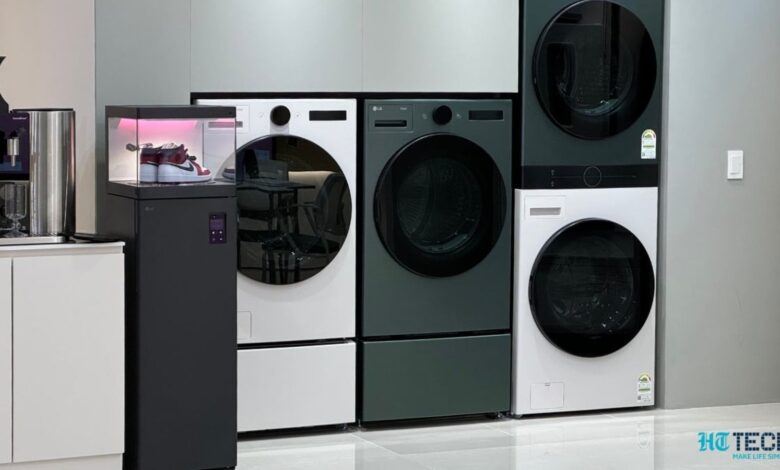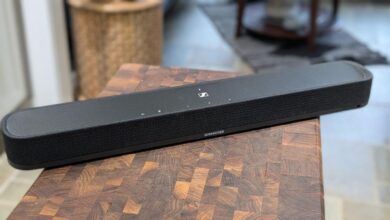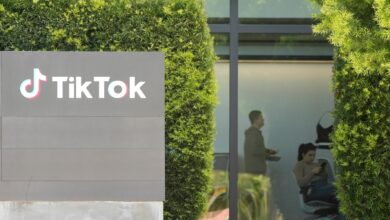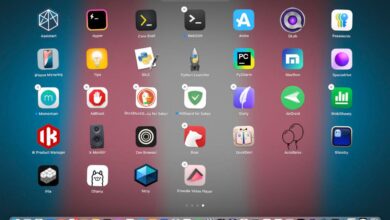LG is now a ‘smart living solutions’ company. Here’s how AI, content, vehicle software and HVAC play a big part in that

Gaining recognition in the global consumer electronics industry is no easy feat. Imagine the effort it takes to ensure that everyone is connected. Apple with creative work and aspirations, or the way that graphics card instantly reminds you of NVIDIAThe way ‘Thanda matlab Coca Cola’ spread like wildfire, and iPod was once the default term for MP3 player.
Similarly, PhoneLG, or Lucky Goldstar as it was formerly known, is famous for its home appliances. Visit any Indian household, and chances are you’ll find an LG product—whether it’s an air conditioner, a TV, a refrigerator, or even just a microwave. LG has spent years building the foundation and brand to make its products recognizable, and while it has been successful in associating home appliances with the brand, the company is now diversifying—to become a “smart living solutions company.” And no, as many think, it’s not just a rebranding exercise; it’s an overhaul that LG wants to give to its brand image—to make life better for everyone as the world of consumer technology changes rapidly.
Simply put, LG isn’t just making home appliances. In fact, its product portfolio now includes solutions for vehicles, with a focus on turning your car into an extension of your home, if you will. Plus, the company is working to educate people about social media algorithms and how to tweak them to create great content. Of course, the company has Artificial intelligence strategy, with its own principles governing the development of ‘Emotional Intelligence’. In addition, the company is constantly working to improve its existing areas, such as HVAC solutions, to promote electrification and contribute to solving the problem of climate change.
LG’s AI is ‘Emotional Intelligence’
AI for Apple is Apple Intelligence, similarly, for LG, AI stands for ‘Emotional Intelligence’ and the company sees this field as a means of caring for and bringing convenience to people’s lives.
But first, let me address the dilemma: What role does AI play in something like this? Washing machine Or a refrigerator? For the electronic devices we use every day, it is imperative that companies aim for experiences that are thoughtless to the end user. For example, some of LG’s washing machines use AI to identify the fabric of the clothes and select the best wash cycle based on the fabric type and user preferences. Typically, for appliances like washing machines, many people tend to ignore the myriad of options that manufacturers provide, but this is where AI comes into play.
LG says it has collected insights from 700 billion hours of device usage across 700 million LG devices worldwide, and that’s why the company believes it can help people live better lives—a better life through customer-centric AI. “LG is using its vast store of insights and hundreds of millions of devices as an AI accelerator, helping us deliver the most customer-centric AI ever,” said Han Eun-jung, vice president of LG’s AI Lab.
Think about it: we’ve seen mainstream AI bots, including ChatGPT and Gemini, based on advanced Large Language Models, have played a major role in bringing convenience to businesses and making them more productive for consumers, but until now, we rarely hear about AI implementations in the products we use every day: our appliances—washing machines, air conditioners, TVs—are, after all, some of the products we spend a lot of time with. So, speaking at the product level, it makes sense that LG is bridging this gap.
“It is important that AI brings real value to our customers through human-centered innovations, and that is the purpose of Affectionate Intelligence,” said Han Eun-jung, vice president of LG AI Lab.
On the other hand, we have seen how the word ‘Artificial Intelligence’ has been perceived in a negative light. Not only is LG using something (in this case Emotional Intelligence) as a brand, but other giants like Apple have also used another brand in the form of Apple Intelligence, and I understand where these companies are coming from. Soon, many other companies may follow suit on their own terms.
Read more: Motorola Edge 50 vs Realme 13 Pro: Know which smartphone to buy under Rs 30000.
Help people consume better content, connect with young people
LG is also working to improve its connection with young people—to help them understand how its products can help them. To do this, the brand has initiated efforts to build physical spaces like Ground220 in Seoul, where customers can come and do a variety of activities, including designing their own T-shirts and learning about the brand’s various products.
Additionally, LG is not afraid to admit that social media can sometimes be a toxic place. And for this reason, the Korean giant has launched a campaign called ‘Optimism Your Feed’. To do this, LG has partnered with creators themselves to create curated playlists and original content for their audience, helping to build optimism and training their algorithms to show them positive and pleasant content over time. You can find this content on LG’s YouTube channel and other social media platforms.
And, specifically for India, they have organized an All Indian K-POP competition where young Indians can come and showcase their skills in K-POP. This is another way the brand promotes its brand promise, Life’s Good.
LG’s HVAC Strategy for India
India is a challenging place when it comes to climate, with harsh winters and harsh summers, hence the need for customized products. LG is working to build customized products locally and more importantly, bring energy-efficient solutions to help reduce electricity consumption—promoting sustainability.
To do this, the brand tells us it is doing so by investing in local infrastructure. “LG is committed to leading the HVAC market with innovative, energy-efficient solutions that meet the unique needs of customers in every region. Our investments in local infrastructure, including R&D, distribution and service networks, ensure that we provide tailored solutions that enhance comfort and sustainability,” said James Lee, director of the Air Solution Business Unit at LG Electronics Home Appliance & Air Solution Company.
Read more: NASA’s Hubble Space Telescope shared five images of the week from July
Vehicle Solutions aims to improve the in-cabin experience
Many of the interfaces you see in cars today from manufacturers like Mercedes, Hyundai, and Kia have LG in them. How? Well, that includes P2P displays (pillar to pillar) in cars like the Mercedes EQS, ADAS systems, and of course in-car entertainment platforms like Playware. Speaking with Valentin Janiaut, director of software solutions at LG VS Company, he told me that LG is currently looking at two main products: Playware and Metaware. And both are attempts to make a person’s car an extension of their living space—especially given how much time we spend in them.
For those who don’t know, Playware is a secondary system that exists alongside Android Auto and Apple CarPlay to provide entertainment experience, and is mainly offered in cars with multiple screens. Metaware, on the other hand, is designed to improve driving by using augmented reality and mixed reality to provide important information through the AR HUD in the car. Additionally, it also uses procedural AI generation to create 3D environments for maps.




